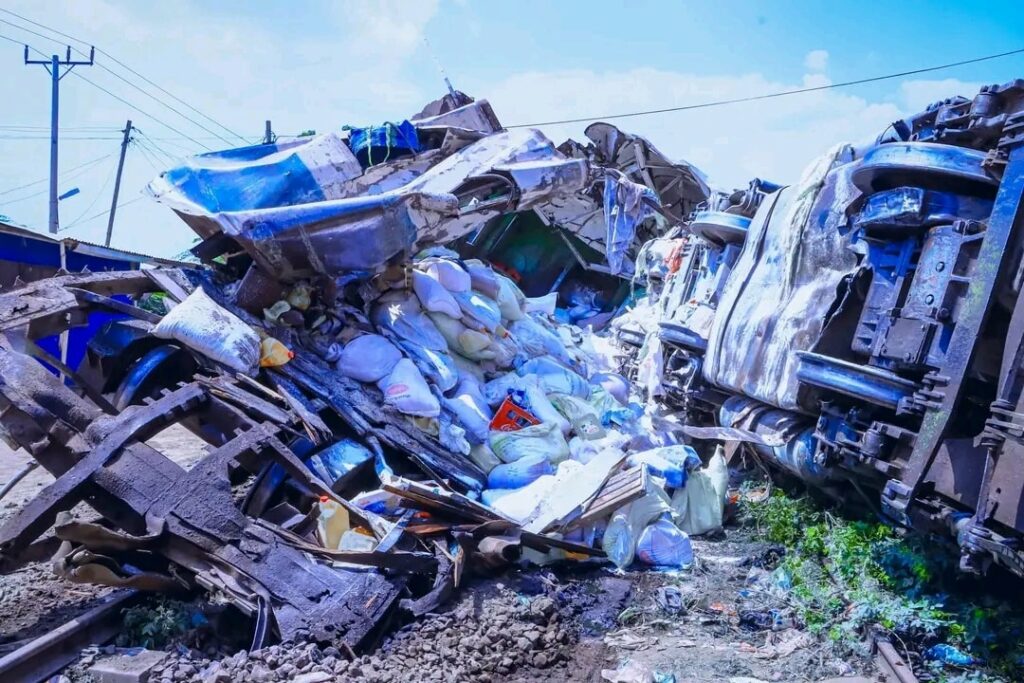Unsafe Railway Operation and Alleged Corruption Scandal in Dire Dawa:
Tragedy Strikes on Decommissioned Railway:
A sense of tragedy and outrage has swept through eastern Ethiopia following reports of a fatal accident involving an unauthorized, outdated train operating on the decommissioned Ethiopia–Djibouti railway near Dire Dawa.
The century-old railway, originally constructed by French engineers, was officially suspended nearly two decades ago due to safety concerns and structural deterioration.
Despite its closure, local residents report that sections of this disused track were recently reactivated by Dire Dawa mayor Khadir Jowhar and Takale Uma without proper clearance or maintenance. This action led to a catastrophic derailment on October 20, resulting in the deaths of 14 people and injuries to at least 29 others.
Leadership and Allegations of Power Abuse:
Takale Uma, the director of the Ethiopia–Djibouti railway system, was appointed by Prime Minister Abiy Ahmed despite lacking experience in railway operations. Historically, railway officials were chosen from the local community and were fluent in French, English, Amharic, and Somali.
The recent changes in leadership are viewed by some as evidence of the Oromo Prosperity Party’s consolidation of power, raising concerns that the interests and lives of the Somali community are being neglected.
Community Reports of Mismanagement and Corruption:
Local communities have raised serious allegations regarding the management of the decommissioned railway system. Residents claim that parts of the old railway track were sold off as scrap metal, with proceeds allegedly shared among certain officials.
The unauthorized reactivation of these unsafe rail lines appears to be motivated by profit rather than community needs. Outdated locomotives and damaged carriages, unfit for human or livestock transport, were used in these operations.
The railway tracks were reportedly handed over to a contractor for sale as scrap metal, with profits allegedly distributed to Somali president Mustafa and deputy Ibrahim Usman. Dire Dawa mayor Khadir Jowhar objected to this arrangement, appealing to Ahmed Shide, who then sent an official letter stating that the railway track metal should be sold by the Dire Dawa mayor as his personal property. Subsequently, Mustafa and his deputy, in collaboration with Adam Farah, reportedly facilitated the sale of the railway track extending from Mulli to Dawenla (on the Djibouti border) to a businessman for approximately 2 billion birr, with the funds allegedly deposited into a personal account. Mayor Khadir Jowhar was given control over the outdated railway, which was not permitted to transport animals, let alone people.
These allegations highlight significant corruption and negligence, with decaying public infrastructure being transformed into a private revenue stream at the expense of public safety.
A Tale of Two Railways: Inequality Exposed
This tragedy underscores the stark inequalities within Ethiopia’s transportation network. The modern, Chinese-built Ethiopia–Djibouti railway only serves major hubs such as Djibouti, Dire Dawa, and Addis Ababa, leaving more than 200 towns and villages—previously connected by the old French-built line—without service. In the past, the original railway provided thousands of jobs, maintenance opportunities, and access to essential services such as healthcare and education. Its closure has left many communities isolated and economically disadvantaged, forcing some to rely on unsafe, improvised rail transport in the absence of alternative roads.
Calls for Accountability and Reform
In the aftermath of the October accident, community leaders and civil society groups have demanded a transparent, independent investigation into the following areas:
• The unauthorized operation of the old railway
• Mismanagement of public railway assets
• Possible diversion of funds and misuse of scrap-metal contracts
• The failure of oversight that allowed unsafe transport to resume
There are also calls for international human rights organizations to advocate for the review of railway governance structures and to ensure strict public accountability for any official misconduct.
The Human Cost of Neglect
This incident is a stark reminder that inadequate oversight and corruption can have devastating consequences. When public infrastructure is converted into a private profit venture, it is often the most vulnerable who suffer the most. There is increasing pressure to guarantee that all infrastructure—whether new or old—serves the public safely, fairly, and transparently.
Summary of the Incident
• 14 people killed and 29 injured in an unauthorized railway accident near Dire Dawa
• Local residents allege corruption in the handling of decommissioned railway materials
• Communities demand an independent investigation and full accountability

